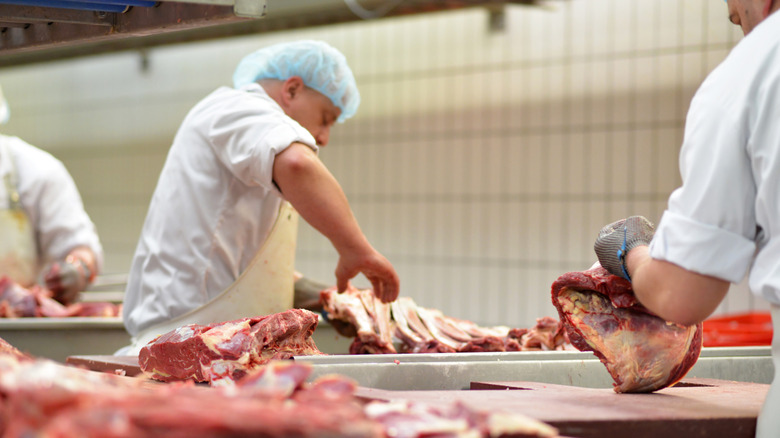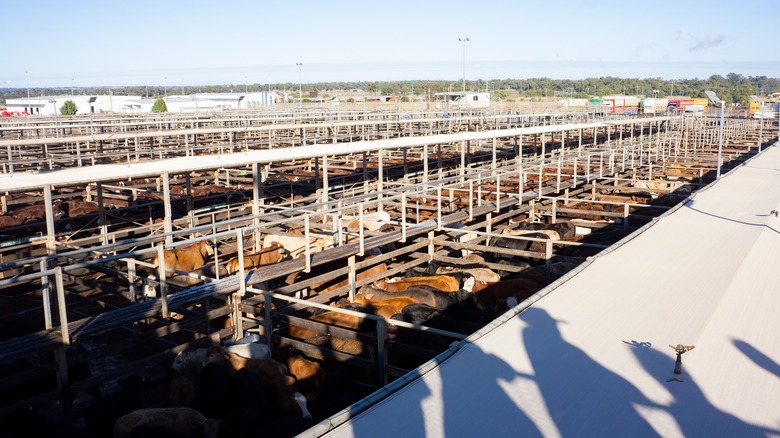The Biden Admin Is Giving Small Meatpackers A $9.6 Million Leg Up
The 1980s and 90s were eras of swift concentration in the U.S. meatpacking industry, explains a 2000 report from the Meat Institute. Leading firms expanded their footprint through large production facilities and acquisitions, while independent meatpackers were absorbed or closed up shop in the face of fierce competition.
Today four international companies – Cargill, Tyson Foods, Marfrig, and JBS Foods – control between 55% and 85% of the market when it comes to the slaughter and processing of beef, pork, and chicken, notes PolitiFact. That concentration of control helped the firms post record profits in 2022. It has also drawn the attention of Washington lawmakers who fear that there may be illegal collusion among these companies, which all four companies have denied under oath.
This consolidation has led to supply-chain "choke points," low prices for ranchers and farmers, and steep prices on meat in the supermarket, claims a piece by the think tank American Enterprise Institute. It argues that consolidation has been fueled by regulations meant to ensure the meatpacking industry follows strict sanitary protocols. Dating back to the early 20th century, the big players allegedly welcomed guidelines that have proven onerous or even devastating to smaller producers. Consolidation into just a few hands has also resulted in a system that isn't robust against crises, such as when COVID ravaged the industry and drove prices up, according to Marketplace. A new government endeavor, however, aims to balance the industry with support for smaller players.
Funding independent processors
The Biden administration, says Food Dive, has allocated $9.6 million for 25 investments spanning 15 states, with a focus on expanding access to vital infrastructure. The funds are going to "small meat farmers, ranchers, processors," and businesses in rural areas that aim to grow their share of the overall marketplace. This is not only meant to help level the industry playing field but to address concerns surrounding regional processing capacity due to consolidation. Agriculture Secretary Tom Vilsack explained, "It may very well be that some parts of this country are not in a circumstance or situation where additional capacity is needed. But there are other parts of the country where producers may only have one market and therefore they're constrained by that."
The money will be used to fund a diverse swath of ventures. In Virginia, $44,000 is being used to assist farmers of pasture-raised cattle, chickens, and hogs with processing costs supporting direct-to-consumer sales, says Reuters. And, a Texas company has received a $4.95 million loan to process locally-sourced meats and expand retail offerings via a new facility. Vilsack further explained that more funding for measures supporting independent farmers, ranchers, and meatpackers may become available in 2023.

